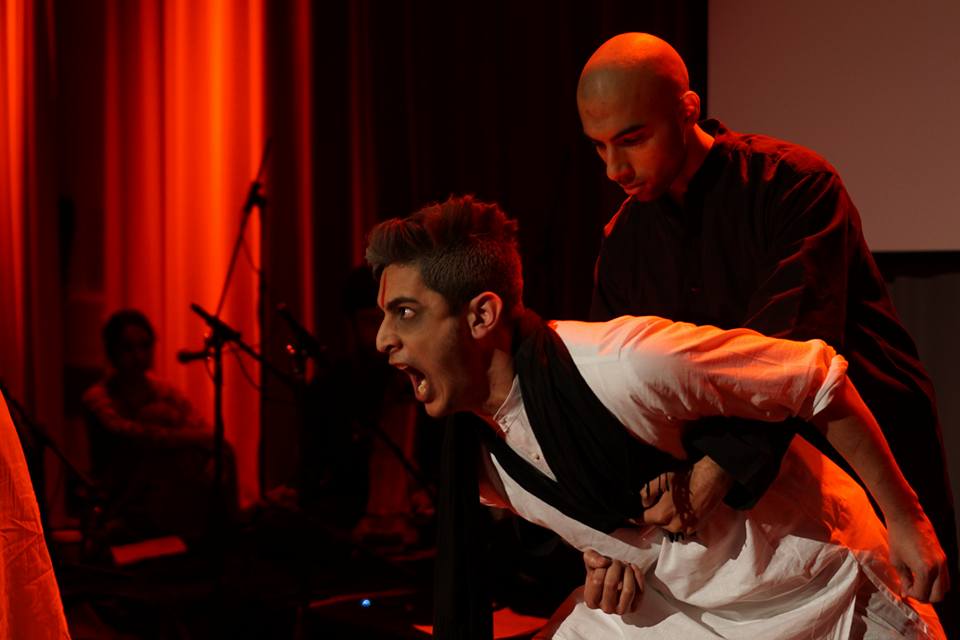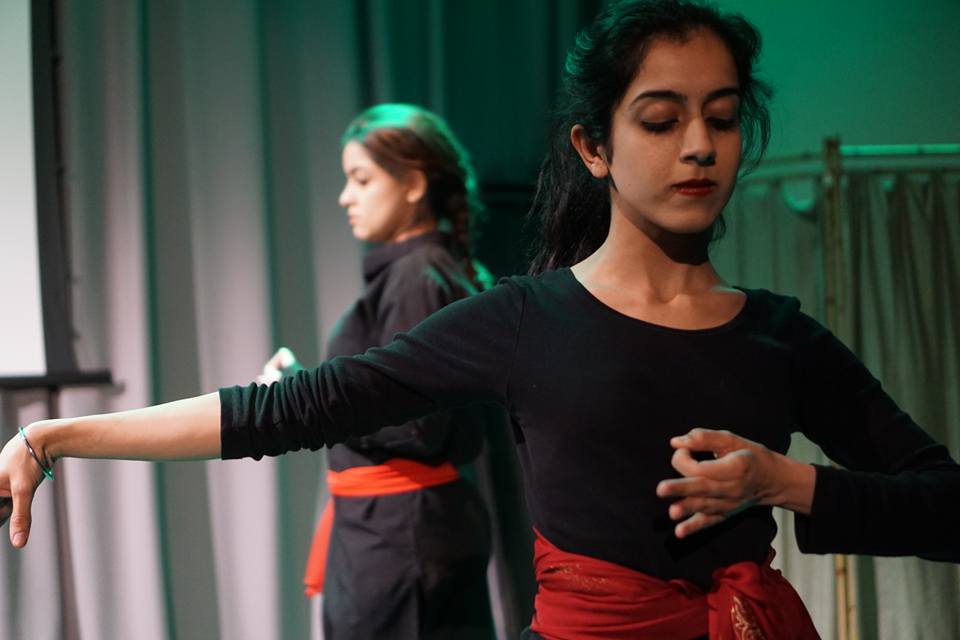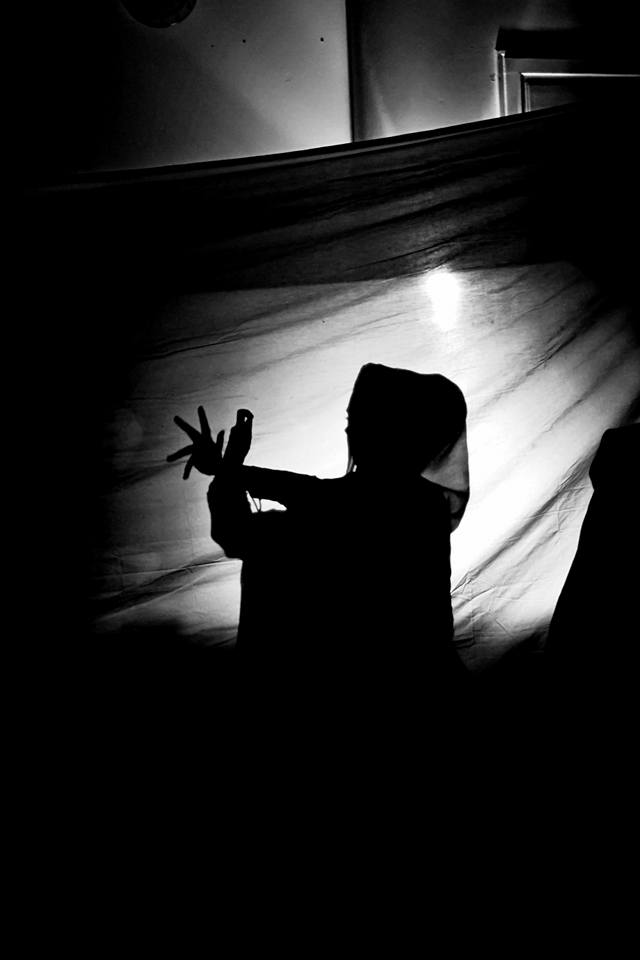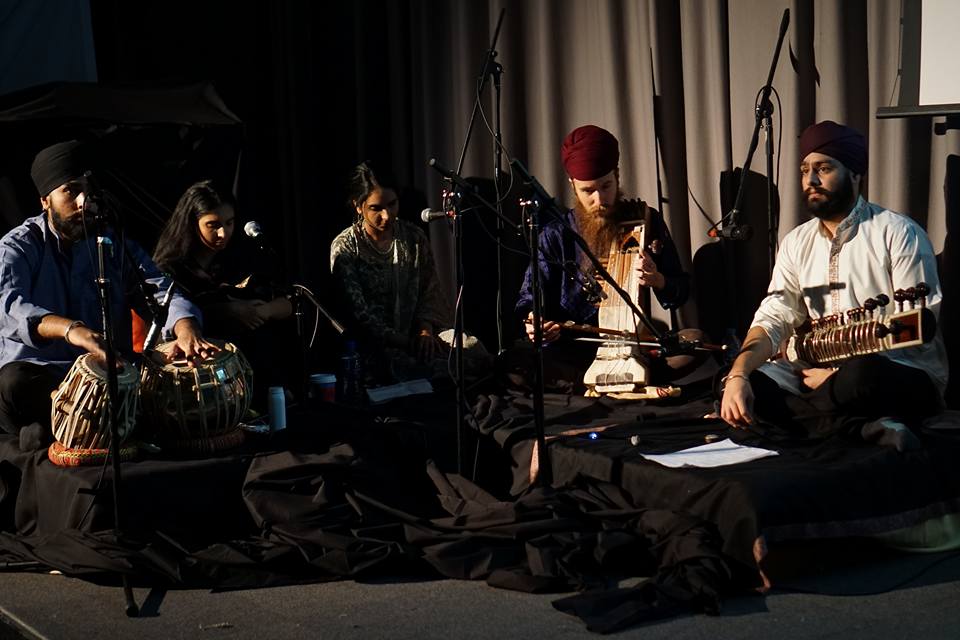Student Led 'Tales of 1947' Casts Light on Partition and Diaspora

Ella Linskens, BA Arabic and Mel Plant, BA Arabic and Turkish
On the 5th of December, the preview performance of a student led multilingual play, ‘Tales of 1947’ was performed at SOAS. This play is based on Saadat Hasan Manto’s ‘Toba Tek Singh’, ‘A Tale of 1947’, other accounts of the partition of British-colonised India, referred to as Hindustan, in 1947. Adapted and directed by Marta Schmidt and Zain Haider Awan, the play was produced by the South Asian Diaspora Society. The Society hopes to expose the wounds of the partition so that fractures can be healed.
‘Tales of 1947’ starts in a Lahore asylum, where Muslim, Sikh and Hindu inmates are to be exchanged after the partition. The main character, an inmate by the name of Bishan Singh, escapes from the asylum and wanders through Pakistan asking the question “where is Toba Tek Singh?”, the town of his birth. He asks this question to those he meets in his journey, who tell him their stories of partition and the violence and destruction linked with it.
Through these exchanges we encounter personal stories of the partition, often overshadowed by the larger political narratives. In the leaflet handed out during the performance, it’s written that in “this ‘blame game,’ the voices of the masses and their stories have been silenced.”
By incorporating 5 languages (Urdu, Hindi, Punjabi, Bangla and English), which were translated with subtitles on a screen behind the stage, Awan hopes to see “more prominence given to South Asian narratives and stories.” He commented that he would have loved to include more languages and dialects familiar to the South Asian diaspora and the characters of the play, but “due to the time and capacity and the limitations of it being a play” it wasn’t possible.
Reflecting on the popularity of the play amongst the South Asian diaspora, Awan stated that the use of multiple languages from the Indian subcontinent meant that the “play will be a service to the diaspora at large,” providing inter-generational and multilingual communication on stories which “[his] grandparents have gone through.” The play has gathered interest from Bradford, Peterborough and other parts of the UK with large South Asian communities, and will be performed across the UK in the future. Similarly, the audience at the SOAS performance was in majority South Asian.
Awan has highlighted that South Asian communities “really need to see this play as it’s performed in their languages.” During the Q&A session which followed the performance, he said that the play shows that there is “consciousness within the diaspora and that [they] are not confused” about their past or heritage. Likewise, in our interview, Awan expressed a desire to create engagement with the arts within South Asian communities, through media such as ‘Tales of 1947’ which contain stories with which those communities can actively engage and connect.
“Our parents generations and the older generations could not communicate proficiently within English, and the arts in the UK were inaccessible for the vast majority of them [so] there’s a richness in the languages with which we’re performing,” he continued. “As someone who was interested in the arts, the arts was very disengaging for me growing up because the narratives which were told were stories which I couldn’t connect to. As an actor it’s extremely important that you connect to those stories. [‘Tales of 1947’] is a story which actually holds a lot of value… it’s stuff my parents are impacted by and it’s what shapes me as an individual. Partition is an extremely important part, even to those who weren’t alive at that time.”
This “richness” of the languages was also reflected upon by Afsheen Butt (BA Korean and Music), who commented that “the translations, at moments, didn’t do the poetry justice.” Despite the multiple language barriers, “having grown up with the stories of Hindustan from [her] grandmother,” the play resonated with Butt, bring back “many memories” and shining light on “the stories that were easily forgotten and how many lives were destroyed.”
‘Tales of 1947’ was an incredibly beautiful and dynamic performance, weaving the experience of history with the creative expression of the diaspora. The live music, which backed the play with traditional instruments (including a sarangi, sitar and tabla), was highly moving. Watching from the stalls, the feeling of wanting to be able to watch everything more closely recurred to me, especially the actors’ captivating performances. The performance also made use of a white screen behind which the actors performed, creating a dynamic silhouette. Through this screen, the actors could convey the most frightening and emotional scenes by replicating emotions into a physically realised form. I will not soon forget the image of a dancers’ trembling hands behind the screen.
The play deals with many pertinent themes, one of these being the confusion of identity. ‘Tales of 1947’ persistently asks where and how identity can be produced and lived when we are divided and ‘made’ through borders and national concepts. The repeated question “where is Toba Tek Singh?” lay haunting focus on the effects of the partition, with Bishan Singh’s hometown of Toba Tek Singh lying in newly-created Pakistan, despite his new home as a Sikh being defined as within India.
Awan reflected that the current context of the ‘refugee crisis’ and a media focus on borders, the play is an especially pertinent conceptualisation of the nature of migration, in all its scars. The partition “is one of the largest migrations in the whole of the 20th and 21st century… when you look at it from that perspective and you see how people are [outcast] and how lines are drawn,” he says that ‘Tales of 1947’ lends an important lens to the current crisis of borders: “it’s so important Manto’s story be told to the world,” even if it is “disheartening.”
The stories of Manto and now the play influenced by them have managed to keep alive stories of the partition and create a channel to process grief that otherwise remains hidden. I can’t speak for others in the audience, but I had a resounding feeling that those sitting next to me had heard similar stories from their families and that what they were watching resonated very deeply. Awan shared at the end that one of the stories was very similar to something his grandmother had shared with him.
Similarly, Afsheen Butt said that “sitting in the audience watching a play about how my homeland struggled and fought for independence from its own sister… was hard. I remember my grandmother talking about Muslims and Hindus living as neighbours in harmony… [which was] well portrayed in the mental asylum.” She continued to say that the life detailed by the cast acting as inmates in the asylum was that of “the Hindustan that existed before it was colonised and divided in two,” reflecting that that play could act to raise awareness around South Asian history and “remind people of South Asian descent that Pakistanis and Indians didn’t always have this much tension and hate between them.”
This personal connection of the actors to the stories told through the play proved an important learning experience for many involved. Many of the cast members had never acted or “been exposed to the arts,” meaning that the rehearsal process was a constant state of learning and re-learning to be “comfortable with the arts, comfortable with theatre and [to know] that this is something which is part of [their] heritage as diaspora youth.” Awan described rehearsals as “challenging” experiences, with many new actors experiencing a deep emotional connection to the play.
I, who have no personal connection to the partition, was moved to tears at many points during the performance. What simultaneously resounds within me is that there are parts of the play that are inaccessible to me, and these layers are only known to those of the diaspora. I think it is within this deep emotional specificity that the power of ‘Tales of 1947’ lies. There was a distinct sense that this play was “not theatre for the sake of theatre,” as expressed by Zain in the Q&A Session following the performance. Instead it was there to “break down walls which were put up through hollow nationalism”.
‘Tales of 1947’ was sold out in a span of 6 hours, including a matinee performance which was not originally planned, alongside a waiting list of over 600 people hoping to watch the performance. The cast and crew hopes to return to the performance back as part of a tour, which will start with a performance in London, “in a bigger and more professional venue, [while] hopefully still making it accessible to the vast majority of our audiences.”
Photos: ‘Tales of 1947‘ Facebook page. Follow this page for more information on additional performances of the play.







